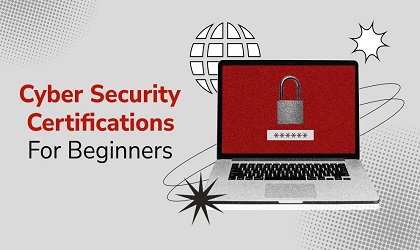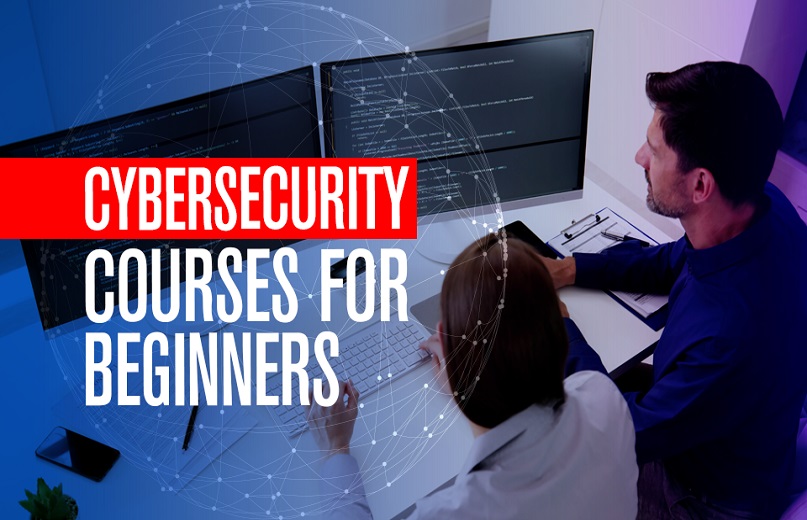With the rapid rise of cyber threats, data breaches, and online fraud, cybersecurity has become one of the most critical fields in today’s digital world. Cybersecurity courses for beginners are essential for those looking to enter this dynamic industry. Whether you’re fresh out of school or considering a career change, cybersecurity courses for beginners offer a wide range of opportunities to build the foundational skills needed to succeed. Byte Care Limited, a leading tech solutions provider in Bangladesh, offers comprehensive cybersecurity courses for beginners, equipping them with essential cybersecurity knowledge.

This article outlines the key elements of cybersecurity courses for beginners, the skills you’ll acquire, and why it’s a promising career path.
Why Start a Career in Cybersecurity?
The importance of cybersecurity cannot be overstated in today’s interconnected world. Companies, governments, and individuals face constant cyber threats that put sensitive data and digital infrastructures at risk. This creates a demand for skilled cybersecurity professionals who can protect, detect, and respond to these threats.
Here’s why a career in cybersecurity is worth pursuing:
- High Demand: There’s a growing skills gap in the cybersecurity industry, with more jobs available than qualified professionals to fill them. This demand translates to strong job security.
- Competitive Salaries: Cybersecurity professionals are among the highest-paid in the tech industry, with salaries that reflect the high demand for their skills.
- Diverse Career Options: From ethical hacking and network security to data protection and forensics, cybersecurity offers a wide range of specialized roles.
- Constant Learning: The cybersecurity field is dynamic, requiring continuous learning and adaptation, making it a stimulating career for those who enjoy challenges and problem-solving.
Key Cybersecurity Skills for Beginners
Before diving into specific courses, beginners should be aware of the foundational skills they need to develop. These skills are critical for understanding the basics of cybersecurity and for advancing in the field.
- Networking: A solid understanding of networking fundamentals is essential in cybersecurity. You’ll need to understand how data flows between systems, how networks are structured, and where vulnerabilities may lie.
- Operating Systems: Knowledge of various operating systems, particularly Linux and Windows, is important since cybersecurity professionals often deal with vulnerabilities and attacks specific to these platforms.
- Cryptography: The art of securing communication through encryption. Understanding cryptographic methods helps beginners grasp how data is protected and transmitted securely.
- Risk Assessment: Cybersecurity is all about managing risks. You’ll need to learn how to identify vulnerabilities and assess the risks they pose to systems and data.
- Ethical Hacking: Ethical hackers use the same techniques as malicious hackers but for good purposes. Ethical hacking courses introduce beginners to basic hacking methods and show how to protect systems from these attacks.
Top Cybersecurity Courses for Beginners
A number of reputable institutions offer beginner-level cybersecurity courses for beginners. These courses are designed to introduce fundamental concepts, providing a strong foundation for further study or career advancement.
- Introduction to Cybersecurity by Coursera
This course is designed for absolute beginners and provides a broad overview of cybersecurity concepts. It covers key topics such as security threats, cryptography, risk management, and network security. - CompTIA Security+ Certification
CompTIA Security+ is one of the best entry-level certifications for aspiring cybersecurity professionals. The course focuses on network security, access control, identity management, and security threats. It’s also globally recognized, making it a strong addition to your resume. - Certified Ethical Hacker (CEH)
For those interested in ethical hacking, the CEH certification is an excellent starting point. It teaches the methods hackers use to break into systems and the tools needed to defend against these attacks. - Cisco’s CyberOps Associate
This beginner-friendly certification from Cisco focuses on threat intelligence, security monitoring, and incident response. It’s ideal for those looking to build a career in network security. - Byte Care Limited’s Cybersecurity Fundamentals
For those in Bangladesh, Byte Care Limited offers a tailored beginner’s course that covers all the basics of cybersecurity. This offline and online course provides hands-on experience in network security, ethical hacking, and more. Byte Care Limited is renowned for its practical approach to learning, ensuring students gain real-world skills.
What to Expect from a Cybersecurity Course for Beginners
Beginner cybersecurity courses for beginners are designed to introduce students to the foundational aspects of cybersecurity, with a mix of theoretical knowledge and practical skills. Here’s what you can typically expect:
- Hands-on Labs: Many courses include hands-on labs where students can apply their knowledge in simulated environments. This practical experience is essential for understanding how cyberattacks occur and how to prevent them.
- Fundamental Theories: Expect to learn about the core principles of cybersecurity, such as confidentiality, integrity, and availability (CIA), along with topics like encryption, firewalls, and intrusion detection systems.
- Basic Tools: Courses will often introduce beginners to common cybersecurity tools such as Wireshark, Nmap, and Metasploit, which are used for network scanning, vulnerability detection, and penetration testing.
- Final Certification: Most courses conclude with a certification exam or completion certificate. These certificates are valuable as they validate your skills and can be used to enhance your job prospects.
Career Paths After Cybersecurity Training
Once you complete a beginner cybersecurity course, there are several career paths you can pursue, including:
- Security Analyst: These professionals monitor and protect networks and systems, analyzing security measures and responding to incidents.
- Ethical Hacker: Also known as penetration testers, ethical hackers find vulnerabilities in systems before malicious hackers can exploit them.
- Network Security Administrator: These individuals are responsible for maintaining and securing networks, ensuring that data is transmitted securely.
- Cybersecurity Consultant: Consultants help organizations identify weaknesses in their digital infrastructure and provide recommendations for improvement.
Conclusion
For beginners, cybersecurity courses for beginners provide an excellent entry point into a dynamic and fast-growing field. Whether you choose an online program or enroll in an offline course like those offered at Byte Care Limited, building a strong foundation in cybersecurity is the key to a rewarding career. With the right training and dedication, you can become part of the critical workforce that keeps the digital world safe.



